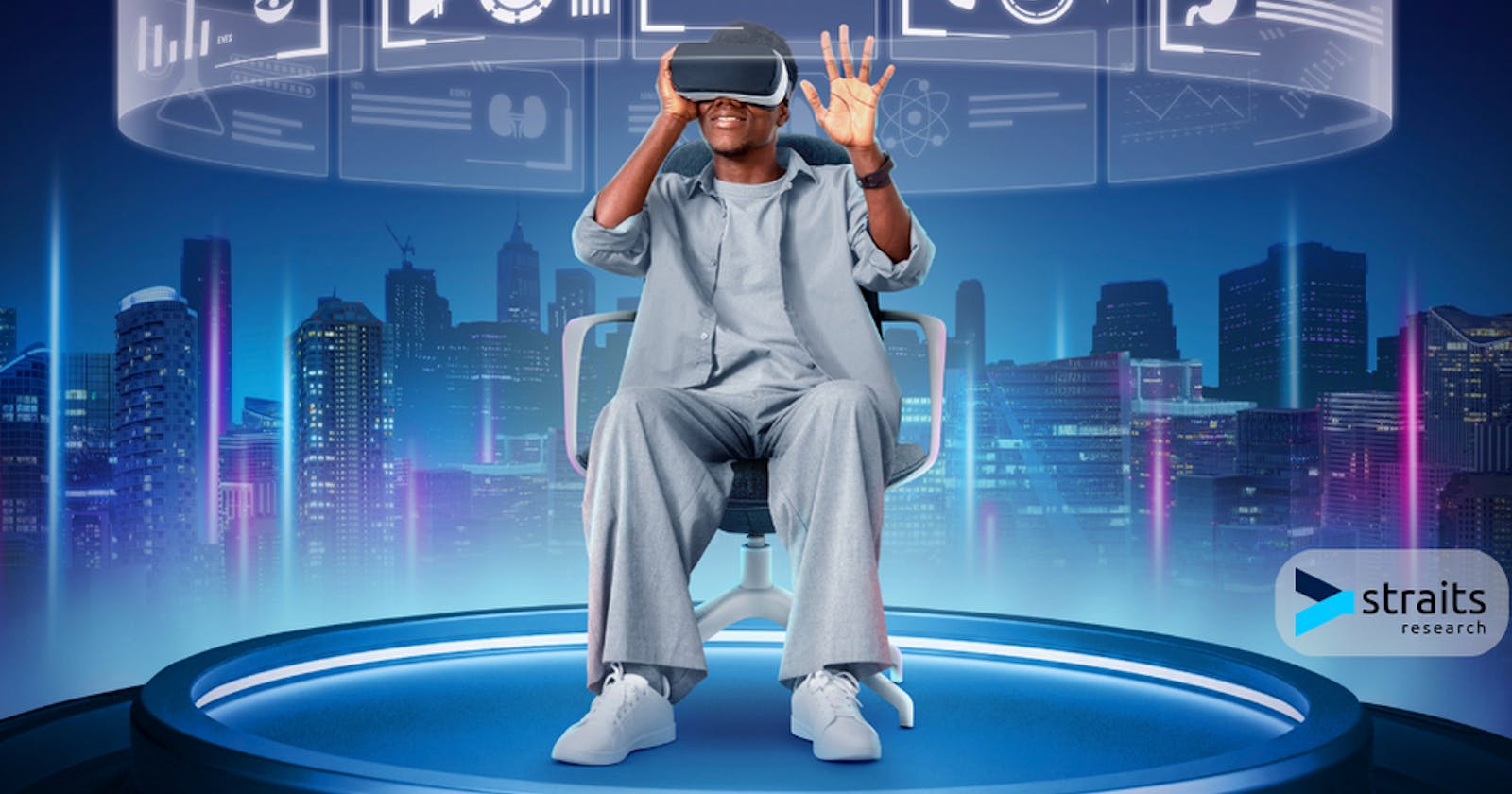A network of virtual and augmented reality (AR) worlds that users can explore with the aid of devices is called the metaverse. It's a dynamic digital ecosystem that lets users engage with one another in a computer-generated setting by fusing real-world elements with virtual information. You can work, live, play games, and socialize in the metaverse. Players are able to move their money, assets, and characters between games. Non-fungible tokens, or NFTs, are a major component of the metaverse and can be represented by land or other aesthetically customizable elements.
"The metaverse" in common parlance refers to a single virtual environment. There will be several metaverses, nevertheless, each with a distinct function and growing at a different rate depending on its goals. For instance, Facebook offers tools like Horizon Workrooms, Horizon Venues, and Horizon Worlds within its metaverse. Horizon Workrooms is a virtual workspace that mimics an actual office; Horizon Venues are computerized simulations of event locations; and Horizon Worlds is an ever-expanding social universe with over 10,000 worlds and experiences.
American science fiction author Neal Stephenson first used the term "metaverse" in his 1992 novel Snow Crash, which imagines a dismal future in which wealthy individuals flee into an other 3D networked reality.
The global metaverse market size was expected to be worth USD 62.23 billion in 2022. It is predicted to grow at a CAGR of 40.6% during the forecast period (2023-2031).
Access for sample report @ https://straitsresearch.com/report/metaverse-market/request-sample
The trends in the metaverse for 2024 and beyond include:
The creation of 3D avatars that closely resemble real humans, known as photorealistic avatar technology, is being employed in a variety of applications such as games, virtual and augmented reality, and the metaverse.
Trends in Metaverse Fashion: Virtual fashion items and experiences are being integrated by the global fashion business, which is adopting metaverse trends.
AR/VR Technologies: Companies are using AR/VR technologies to improve customer experiences and interactions with brands and to build immersive environments.
Web3 and Smart Contracts: Decentralized, transparent, and safe interactions inside the metaverse are made possible by the widespread use of Web3 platforms and smart contracts.
Enterprise Metaverse Development: While businesses like NVIDIA, Unity, Roblox, Decentraland, and others are actively reshaping the metaverse environment, large organizations are aggressively investing in building the metaverse's foundation.
Global Metaverse Expansion: Nations that are actively embracing the metaverse include China, Barbados, South Korea, Dubai, and Spain. They have taken steps like opening embassies and making investments in infrastructure and economies within the metaverse.
Interoperability and human Experience: With an emphasis on immersive experiences and human agency, the metaverse is moving toward smooth interoperability among various metaverse platforms, allowing users to move between locations with ease.
The challenges of implementing the metaverse include:
Security and Privacy Issues: The collection of biometric data and personal information gives rise to issues relating to security breaches, theft, bullying, and privacy concerns. To protect user data, strong security protocols, data integrity measures, encryption standards, and privacy regulations are necessary.
Interoperability: Building a cohesive metaverse ecosystem requires that virtual worlds inside the metaverse be able to freely exchange assets and data. It is difficult to establish standards and norms for interoperability since different virtual environments use different platforms and technologies.
Cost and Technical Difficulties: Creating immersive virtual worlds in the metaverse can be costly and technically difficult, requiring specialized knowledge in fields like programming, game design, and 3D modeling. To get over these obstacles, businesses must continue to engage in partnerships, research, and development.
Limited Use Cases: The dearth of applicable use cases and real-world examples makes it difficult for many firms to comprehend how the metaverse may improve their sector or operations. It can be difficult to adapt goods or services to the metaverse environment; it calls for in-depth study, professional collaboration, and an assessment of operations to find possible advantages.
Lack of Standards: Interoperability, cooperation, and the development of immersive experiences that span several platforms are hampered by the lack of generally recognized standards for creating and managing virtual worlds inside the metaverse. Addressing this issue and promoting a coherent metaverse ecosystem require the development of shared standards and protocols.
Top Keyplayers of Metaverse Market
Meta Platforms Inc.
Nvidia
Microsoft Corporation
Tencent Holdings Ltd.
Bytedance
Epic Games
Roblox Corporation
Lilith Games
Nextech AR Solutions Inc.
Netease Inc.
Unity Software Inc
Antier Solutions
Purchase the report @ https://straitsresearch.com/buy-now/metaverse-market
Conclusion:
The term ""metaverse"" refers to a novel digital environment where immersive experiences are produced by the convergence of augmented and virtual reality technology. Users can work, socialize, play games, and even conduct business transactions across interconnected virtual worlds in this dynamic environment. The metaverse is a collection of distinct ecosystems that serve different functions and evolve at different rates; it is not a single entity. For the metaverse to be implemented successfully and widely adopted, a number of issues need to be resolved. These difficulties include lack of defined protocols, limited use cases, technological complexity, privacy and security concerns, and interoperability issues. It will take cooperation from industry participants, technology developments, and the creation of precise regulatory frameworks to overcome these challenges.
About Us:
StraitsResearch.com is a leading research and intelligence organization, specializing in research, analytics, and advisory services along with providing business insights & research reports.
Contact Us:
Email: sales@straitsresearch.com
Address: 825 3rd Avenue, New York, NY, USA, 10022
Tel: +44 203 695 0070, +1 646 905 0080
Website: straitsresearch.com
